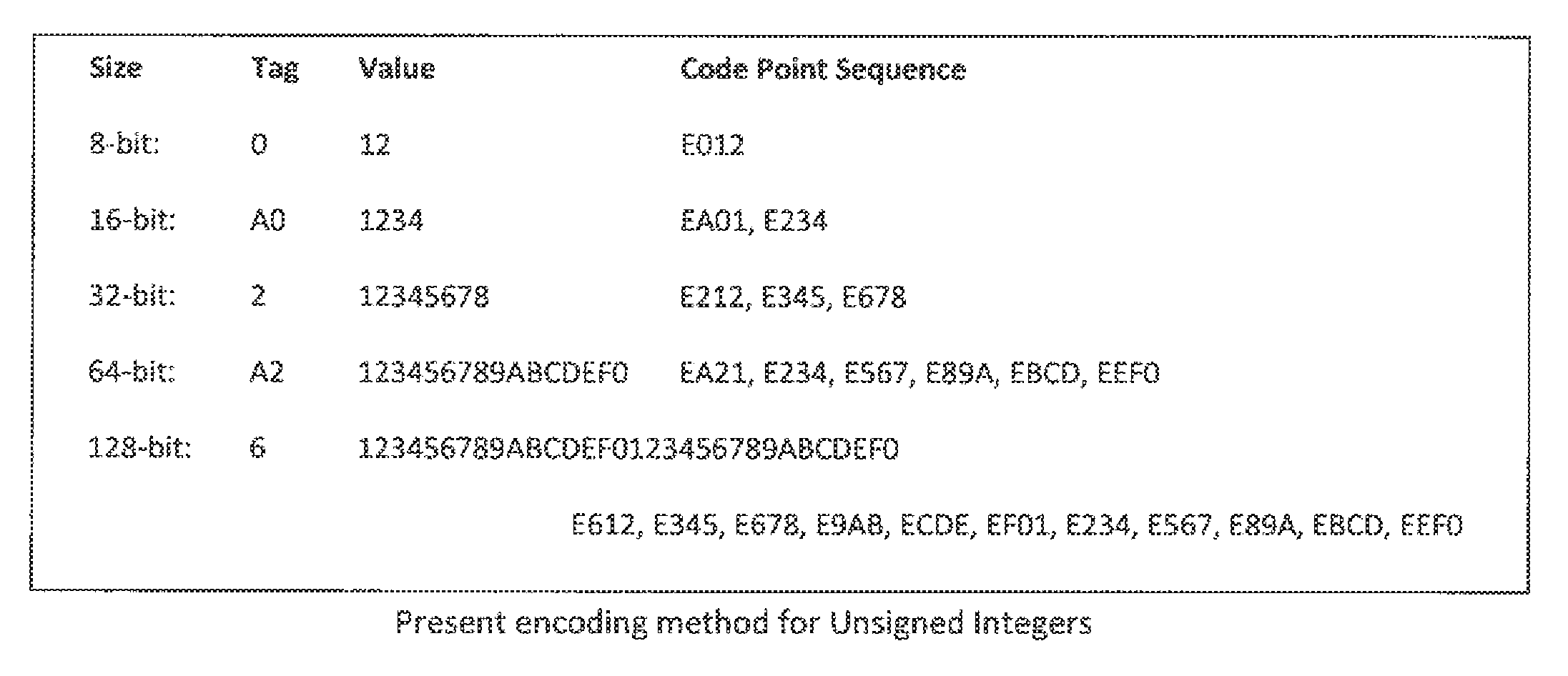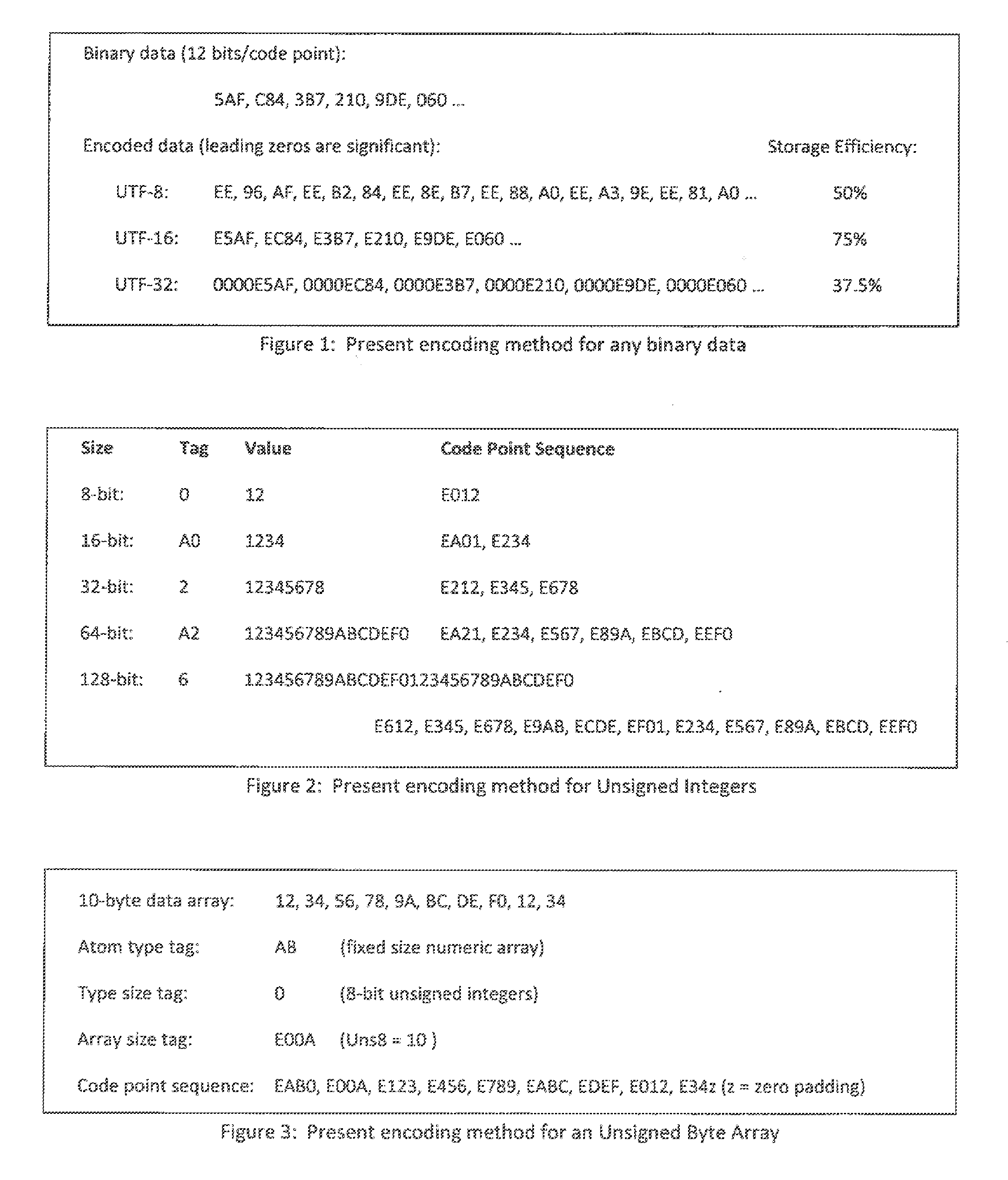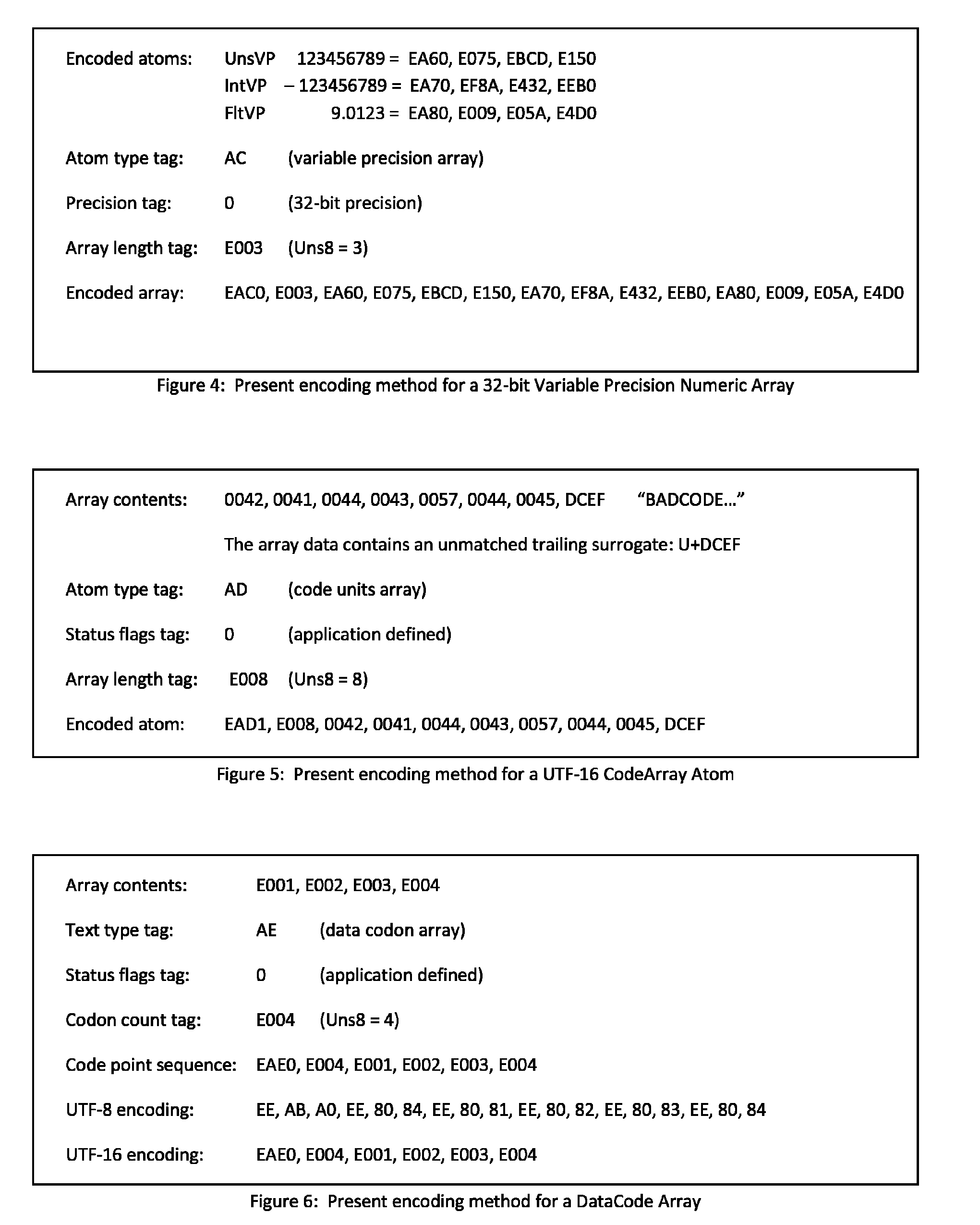Data encoding method
a data and data technology, applied in the field of data encoding system and method, can solve the problems of providing minimal levels of reusability and accessibility, high processing overhead for presentation encoding, and often greater differences in decoding operations, so as to achieve minimal levels of reusability and accessibility, high reusability and accessibility, and maximum processing efficiency
- Summary
- Abstract
- Description
- Claims
- Application Information
AI Technical Summary
Benefits of technology
Problems solved by technology
Method used
Image
Examples
Embodiment Construction
Encoding
[0033]The Basic Multilingual Plane defined in the Unicode Standard contains a block of code points from U+E000 to U+F8FF, permanently reserved for the private use of any application, known as the “private-use area.” The Unicode Standard does not define characters for these code points, allowing each to represent numerical data, text characters or other information. The first section of this block is the set of 4096 code points from U+E000 to U+EFFF, referred to here as the “E-block” for brevity.
[0034]Note: A discussion of the technical merits of this code point block is provided later.
[0035]The most basic aspect of the present encoding method is the mapping of any binary data set into a sequence of one or more E-block code points defined as the Boolean OR of the constant 0xE000 with a 12-bit data value from 0 to 0xFFF. The decode operation extracts the original data value as the Boolean AND of the code point with the constant 0x0FFF. The encoding of binary data as UTF-8, UTF...
PUM
 Login to View More
Login to View More Abstract
Description
Claims
Application Information
 Login to View More
Login to View More - R&D
- Intellectual Property
- Life Sciences
- Materials
- Tech Scout
- Unparalleled Data Quality
- Higher Quality Content
- 60% Fewer Hallucinations
Browse by: Latest US Patents, China's latest patents, Technical Efficacy Thesaurus, Application Domain, Technology Topic, Popular Technical Reports.
© 2025 PatSnap. All rights reserved.Legal|Privacy policy|Modern Slavery Act Transparency Statement|Sitemap|About US| Contact US: help@patsnap.com



